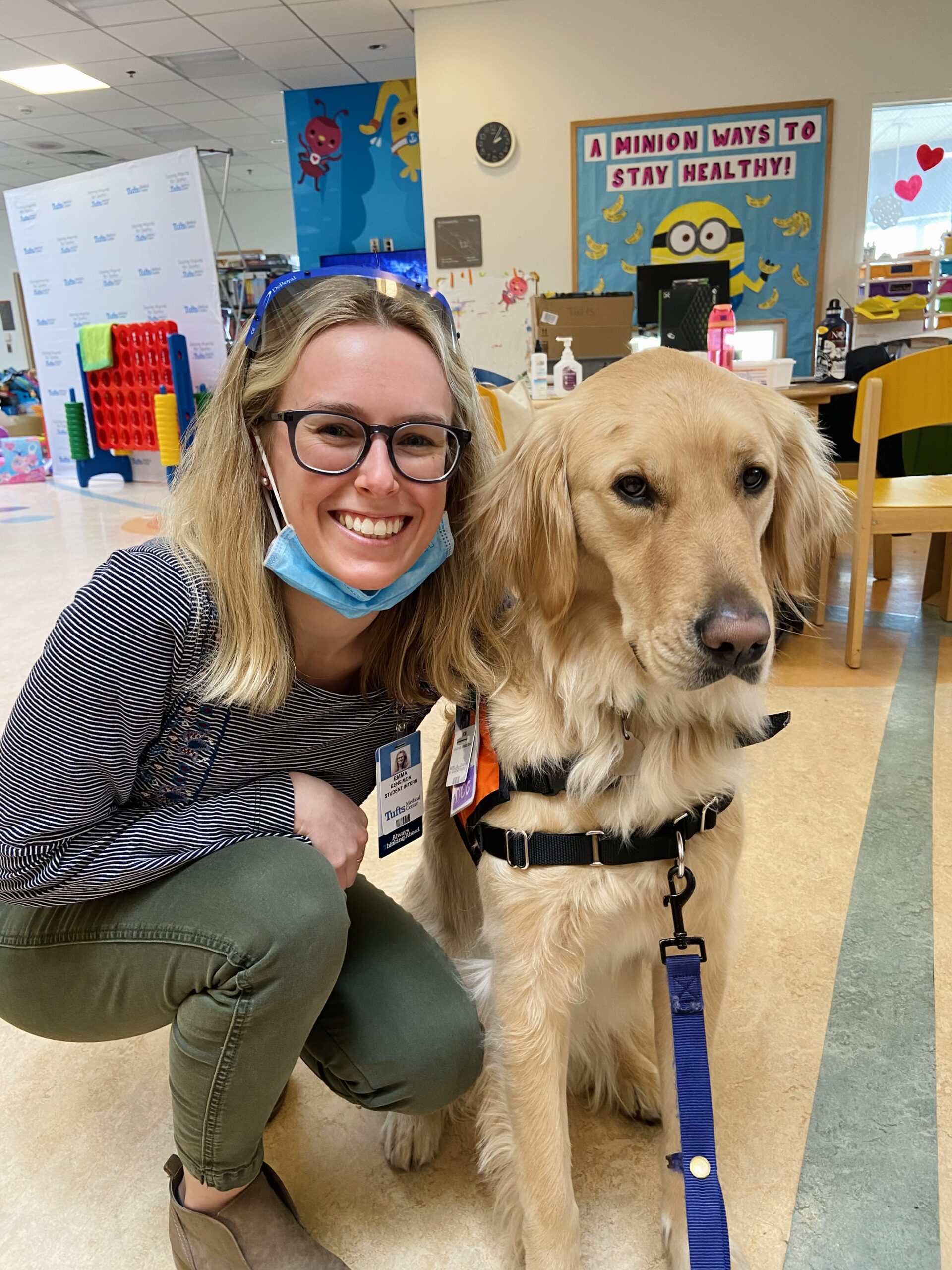The Importance of Child Life and Family-Centered Care during COVID-19

Emma Bensimon and Tufts Children’s Hospital service dog Bob
The Importance of Child Life and Family-Centered Care During COVID-19
The hospital can be a scary place for both kids and adults, regardless of a global health emergency, but COVID-19 has created an even more intimidating healthcare environment. It can be hard for people to connect with providers when half of their face is covered up by a mask, or when the provider quickly leaves the room, for fear of COVID exposure. However, child life specialists have the opportunity to provide a genuine connection for patients and families during this extra stressful time.
Child life specialists are members of the healthcare team who focus on the psychosocial needs of children and families. Understanding child development and recognizing potential stressors, they provide support to families to help minimize the negative effect of a healthcare event. I am thrilled to be in the Child Life program at BU Wheelock, and I think completing my internship in today’s world is giving me a strong foundation to help people at their most vulnerable.
A major aspect of child life is play, which is used with a child as a means of both learning and coping. Providing appropriate play activities will allow hospitalized children to progress in their social, emotional and cognitive development. Because of COVID, many children are participating in virtual learning and not having play dates with friends, so there is already a lack of social interaction at home. In the hospitals, pediatric patients are only allowed to have 1 or 2 parents with them (no siblings or friends), and many patients are not allowed to leave their rooms. These precautions can further hinder a child’s social development and negatively affect their gross motor movement. When I am at my internship site, I try to make playtime a priority because of the lack of social engagement that children are currently facing.
It’s also important to consider that maybe a toddler in COVID times hasn’t been exposed to much of the world. Parents might be leaving young children at home while they run errands, and trips to the park aren’t as much of a social experience as they once were. Therefore, if a toddler comes into the hospital today, it could be more overstimulating than ever before, a stressor that other healthcare providers might not be aware of. I strive to eliminate some of this anxiety by providing opportunities for play, as it can help normalize the medical environment and give the patient a sense of “home” and comfort.
Play can be used as a coping mechanism for all ages, but for older kids, other outlets could help them as well. Child life specialists help patients develop coping strategies, which are especially important right now because they can be continued at home after the patient is discharged. Whether it’s something as simple as deep breathing or emotional expression through arts and crafts, I remind patients of the things that bring them mindfulness and encourage use of them whenever they feel anxious or scared.
The #1 goal of our work in any setting is to support families, but I think the stress of COVID makes child life essential in hospitals right now. By providing opportunities for play and building relationships, I can help minimize the negative impact of a family’s hospitalization. I feel so lucky to be on this career path and in a program that encourages and supports my success.